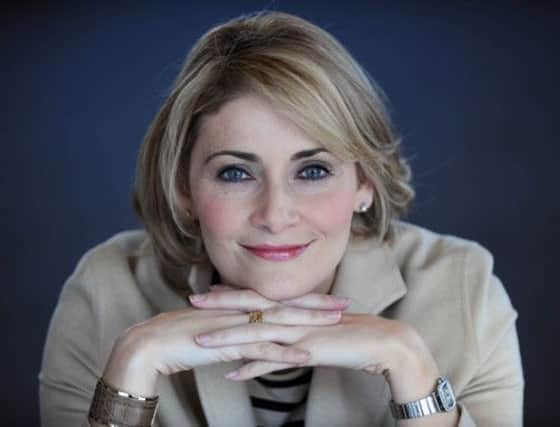Juliet Dunlop: Naming baby Martin


I’m not entirely sure what a “Martin” is supposed to look like, but this little Martin is definitely not it.
If you haven’t seen his baby mugshot in the papers this week, there are his sprouting curls to consider, the dimples, the chubby arms and legs and his one, small, tooth; the centrepiece of a wide, gummy grin.
Advertisement
Hide AdAdvertisement
Hide AdClearly, this is no ordinary child – and certainly no Martin – but a tot who is crying out for a name with a little more… pizazz. His mother obviously thought so too, which is why, up until a few days ago, he was called Messiah DeShawn Martin.
You have to admit, “Messiah” has a certain gravitas, and according to reports, baby Martin, who has also acquired a new surname (confusing, isn’t it?) was perfectly happy with it too. However a judge in Tennessee – a Lu Ann Ballew – has decided that Messiah is no name for a baby, at least not in the US Bible Belt.
As she put it: “The word Messiah is a title and it’s a title that has only been earned by one person and that one person is Jesus Christ.”
But perhaps Judge Ballew has done little Martin a favour. In the long run he may thank her. Messiah is no run-of-the-mill name after all, and it could, quite frankly, become a bit of a burden once you’ve heard “Look everyone, the Messiah is here!” for the millionth time.
There are certainly safer options in the bumper book of baby names. But whether you’re a Mike, a Michelle or a Moses, a name is always more than just a name. It’s who you are, or perhaps more accurately, who your parents want you to be. It’s a statement, a flag on a map, carbon-dating with socio-economic data thrown in.
Take the latest official list of the most popular baby names in England and Wales.
The data, from the Office for National Statistics, was published this week, and every year it tells us something new about ourselves. It’s not just a list of names, it’s a social history. It’s all in there: class, race, religion, fashion, hopes for the future, funny spellings and hyphens.
It’s the usual mix of tradition and trends – Harry and Amelia bagged the top spots again – but in London, Muhammad became the most popular name for boys for the first time.
Advertisement
Hide AdAdvertisement
Hide AdYet, Hugo, Seth, Theodore, Mollie, Ivy and Violet all made their way into the top 100. Is it mere coincidence that it reads like an episode of Downtown Abbey?
In Scotland, we published our list in December. It’s less Edwardian, more Celtic but just as aspirational, only Jack and Sophie are top of the heap. Both perfectly good names, and soon to be the Kevin and the Claire of their generation.
Still, parents in their search for something a bit different, do from time to time saddle their children with truly terrible names.
This is a dangerous path to take and one that can surely only lead to humiliation, unless he or she is the child of someone rich and famous. Then it might not matter quite so much, as little North West, the offspring of Kanye West and Kim Kardashian, may or may not find out.
But sometimes, all a kid wants is to be ordinary, which leads me to Zowie Bowie, son of rock legend David Bowie. He, rather sensibly, changed his name to Duncan Jones.
So, what’s in a name? Well, rather a lot it would seem. The question is what we do with it. Are we defined by our name? Or is it the other way round?
If you subscribe to the notion that first names are class-based, and according to the research many of them are, then how life plays out could well be pre-determined. If you’re called James or Elizabeth, you’re off to a head start, but if you’re a Clint (Eastwood is the exception) or a Chardonnay, you may well need a stiff drink. Unfair, isn’t it? But at least little Martin doesn’t have to worry about his name. Although, someone really ought to tell Lu Ann that 762 baby boys were named Messiah in the US last year.
And that’s rather a lot.